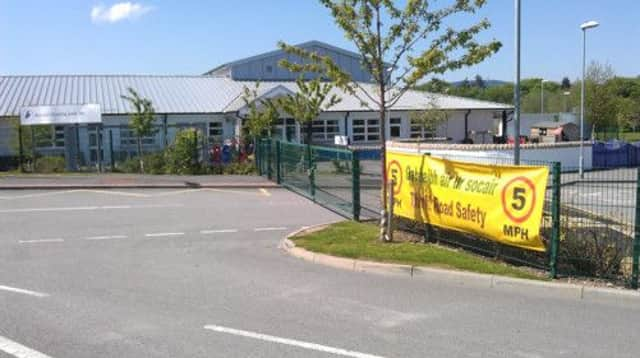Gaelic school signs former referee as headteacher


Jim Lyon will be the new £48,120-a-year head at Bun-sgoil Ghaidhlig Inbhir Nis, having been acting head there for a number of months.
Mr Lyon, 44, who was on secondment from Ardersier Primary School, was also a professional football referee and has officiated at Old Firm games as well as a Scottish Cup final.
Advertisement
Hide AdHe served as an assistant referee from 2003 to 2007 including officiating at internationals.
In 2005 he was involved in an incident which saw the then Celtic captain Neil Lennon - now the club’s manager - banned for three matches for his clash with the referee Stuart Dougal after an Old Firm derby.
The former Northern Ireland international was dismissed by the match official after the Hoops’ 3-1 defeat by Rangers at Ibrox.
He had appeared to barge Dougal after he was shown a red card after the final whistle.
The assistant referee Mr Lyon appeared to be pushed aside, before Lennon was eventually restrained by his Celtic team-mate Paul Telfer.
Mr Lyon, who is learning Gaelic, has been appointed to the Inverness school - which has 190 pupils and 90 in nursery - following interviews which were held on Friday.
Advertisement
Hide AdWhen the school opened in 2007, it was the first purpose-built Gaelic-medium school in Scotland.
However, for the last four years, Highland Council has had difficulties filling the head teacher role.
Advertisement
Hide AdBut this time around candidates did not have to be fluent in the language.
Last year the acting head teacher of the showpiece Bun-sgoil Ghàidhlig Inbhir Nis (Inverness Gaelic primary school) left her job after a row over her inability to speak the language fluently.
Stand in headteacher
Annika Jansson had been acting head of of for more than two years, one of three acting heads in the last three years.
She is from Sweden and had applied for the Inverness job on a permanent basis, after it was advertised for a seventh time. Despite being the sole candidate Ms Jansson was not appointed by an interview panel. Two of her children were in the school.
Now current acting head James Lyon, who is also not fluent in Gaelic, has been interviewed for the - along with other candidates, including fluent speakers.
Some school parents complained over the decision not to appoint Ms Jansson - though the Gaelic parents organisation Comann nam Parant had campaigned for a Gaelic-speaking teacher to be given the role.
Advertisement
Hide AdThe decision not to appoint Ms Jansson followed weeks of controversy over her inability to speak Gaelic which saw some parents accuse the local authority of not doing enough to find a candidate fluent in the language.
A European minority languages organisation also raised concerns about making a non Gaelic-speaking appointment.
Advertisement
Hide AdThe European Language Equality Network (Elen) represents 37 lesser used languages, including Scottish Gaelic.
The organisation’s Dr Davyth Hicks wrote to Highland Council asking it to consider alternative ways to fill the post.
In his letter, he said: “A Gaelic speaker would have a better understanding of how immersion schooling works and its specific needs and priorities.”
Highland Council had to amend its advert for the post after efforts to fill it were unsuccessful. The last advert sought candidates who could learn the language.
A decline in the overall number of Gaelic speakers in Scotland has “slowed”, according to the latest results from the 2011 Census.
The previous Census results recorded an 11% drop in speakers, while the new figures suggest a 1.2% fall from 59,000 to 58,000.
Advertisement
Hide AdThe latest results also show a 0.1% increase in Gaelic speakers aged under 20.
Last year, Bord na Gaidhlig, the agency responsible for improving Gaelic, said it would like to see every Gaelic school run by Gaelic speakers, but that was not always possible.